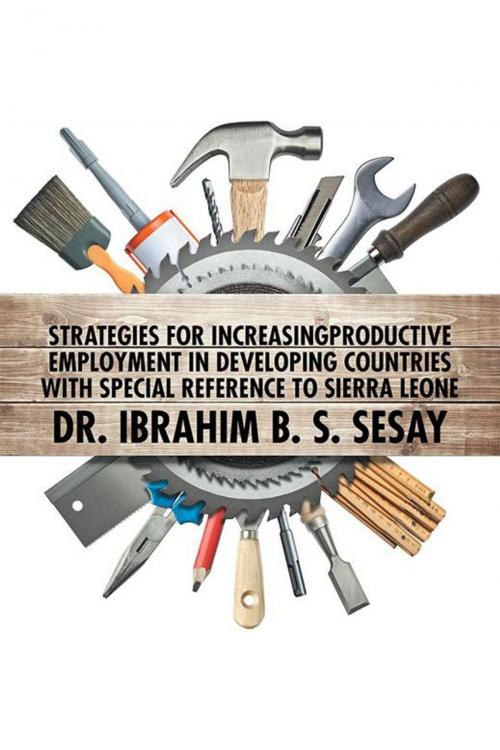Strategies for Increasing Productive Employment in Developing Countries with Special Reference to Sierra Leone
Business & Finance, Career Planning & Job Hunting, Labor| Author: | Dr. Ibrahim B.S. Sesay | ISBN: | 9781503510258 |
| Publisher: | Xlibris US | Publication: | December 8, 2014 |
| Imprint: | Xlibris US | Language: | English |
| Author: | Dr. Ibrahim B.S. Sesay |
| ISBN: | 9781503510258 |
| Publisher: | Xlibris US |
| Publication: | December 8, 2014 |
| Imprint: | Xlibris US |
| Language: | English |
This book as pointed out by Professor Singer in his preface discussed divergent development problems facing developing countries. Participants of the seminar from various African countries brought in case studies from their own countries as comparison with the Kenya case study, where the seminar was held. As a result of this comparative study, field trips were organized by the seminar authorities. In view of these facts and experiences gained from this seminar, I was sufficiently stimulated for my task to write this book based on similar lines, but with special reference to Sierra Leone. My past experiences as a Labor Officer in the Ministry of Labor in Sierra Leone have, in no small way, also contributed to the success of the completion of this book for industrial relations readers to have interest in it. On joining the Personnel and Administration Department of the Standard Bank, I was moved to incorporate in my book a chapter on the role of banking particularly the role of Standard Bank formerly known as the British Bank of West Africa in Sierra Leone. Readers will also find it in one of the chapters current economic development taking place in Africa, particularly regional groupings, for example, the Mano River Union between Sierra Leone, Guinea, and Liberia and The Economic Community of West African States (ECOWAS) and the now defunct East African Economic Community. For this reason, this book will be of tremendous use to planners and economists, bankers, industrialists, teachers, and various people from all works of life concerned with the development of their countries, but it is more particularly useful to Sierra Leoneans because of the many references related to Sierra Leone.
This book as pointed out by Professor Singer in his preface discussed divergent development problems facing developing countries. Participants of the seminar from various African countries brought in case studies from their own countries as comparison with the Kenya case study, where the seminar was held. As a result of this comparative study, field trips were organized by the seminar authorities. In view of these facts and experiences gained from this seminar, I was sufficiently stimulated for my task to write this book based on similar lines, but with special reference to Sierra Leone. My past experiences as a Labor Officer in the Ministry of Labor in Sierra Leone have, in no small way, also contributed to the success of the completion of this book for industrial relations readers to have interest in it. On joining the Personnel and Administration Department of the Standard Bank, I was moved to incorporate in my book a chapter on the role of banking particularly the role of Standard Bank formerly known as the British Bank of West Africa in Sierra Leone. Readers will also find it in one of the chapters current economic development taking place in Africa, particularly regional groupings, for example, the Mano River Union between Sierra Leone, Guinea, and Liberia and The Economic Community of West African States (ECOWAS) and the now defunct East African Economic Community. For this reason, this book will be of tremendous use to planners and economists, bankers, industrialists, teachers, and various people from all works of life concerned with the development of their countries, but it is more particularly useful to Sierra Leoneans because of the many references related to Sierra Leone.















